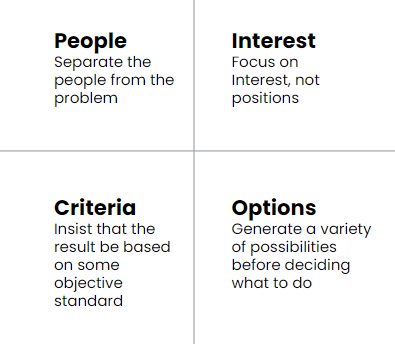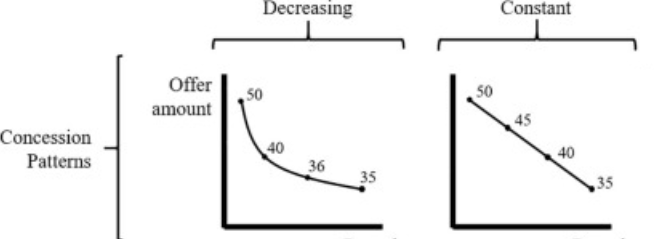Selling is both an art & science, obviously.
The art part consists of essential soft skills which might change your life forever. And one of them is “getting to yes” in any conversation that you have. While you are negotiating with your landlord or trying to find a mutual point in your romantic relationship…
If you are in sales and never heard about BATNA (Best Alternative to a Negotiated Agreement), please stop whatever you are doing at the moment and find out more about it 🙂
If you are in sales enablement and didn’t suggest the book “Getting to yes”, or “Never Split the difference” to your sales community, again, please stop whatever you are doing and include it in your development plans.

Pricing conversation is not easy, and sometimes, even your top performers will lose their confidence during the negotiation. You will be surprised, at how their voice changes suddenly or how uncomfortable they become.
However, it is the time you need to sit back (of course assuming that you had a great value proposition so far), chill, and enjoy the negotiation.
HOW CAN WE LEARN TO NEGOTIATE?
– by staying assertive,
– by being convincing,
– by being a good listener,
– by being calm, civil, and direct,
– by being open, fair, and honest,
– by understanding the other side & empathy,
– by knowing what you want in the end,
– by knowing your borders & when to walk away
And by learning the art of negotiation!
Change the game, look for mutual gains with your counterpart
A very simple example stated in the book “Getting to Yes” about two people quarreling in a library;
One wants the window open and the other wants it closed. They bicker back and forth about how much to leave it open: a crack, halfway, three-quarters of the way. No solution satisfies them both. Enter the librarian. She asks one why he wants the window open: “To get some fresh air”. She asks the other why he wants it closed: “To avoid the draft.” After thinking a minute, she opens wide a window in the next room, bringing in fresh air without a draft.
- See the participants as friends, not as adversaries.
- Put your goal as agreement, not as a victory
- Make concessions to cultivate the relationship,
- Be soft on the people and the problem. Do not forget that we are not machines but human beings with emotions. If necessary, use the power of psychology & open communication
- Change your position easily if necessary, do not stick to it or dig it
- Make new offers, not threats. Find the mutual point for both parties.
Apply the 4 points of principled negotiation

What if they are more powerful?
Develop your BATNA – Best Alternative to a Negotiated Agreement,
Know when you should walk away when you know your BATNA
Know your plan B, C, D…
“Salespersons can win most of the negotiation battles with clients if they avoid saying an outright “No” even to impossible requests, pretend that you are trying before you say a “No” . The art is to absorb all internal procedures and protocols & never let the insecurities reach the client till the last minute. Let the customer think that you have made the best effort.”
― Shahenshah Hafeez Khan
- It provides an alternative if negotiations fall through.
- It provides negotiating power.
- It determines your reservation point (the worst price you are willing to accept).
If you know your reservation point, you will get rid of the anxiety and show them that you are helping them as much as you can. Walking away is not the 1st option especially when you are carrying a monthly quota. But, having your plan B will comfort you and give a positive direction to your negotiation game. That’s why as salespeople, we should know the bottom line, and help our prospects to meet the halfway!
Another simple example;
Colin needs a car and is negotiating with Tom to purchase his car.
Tom offers to sell his car to Colin for $10,000.
Colin scours through Craigslist and finds a similar car to which he assigns a dollar value of $7,500. Colin’s BATNA is $7,500 – if Tom does not offer a price lower than $7,500, Colin will consider his best alternative to a negotiated agreement.
Colin is willing to pay up to $7,500 for the car but would ideally want to pay $5,000 only.
Improve your BATNA
Do not forget that the better your BATNA, the greater your ability to improve the terms of any negotiated agreement.
Negotiators Should Decrease Concessions Across Rounds
A series of diminishing concessions will show your prospect that you are getting closer to your reservation point (or reservation price). When the other party notices that concessions are growing smaller, they may lower their expectations and demands, resulting in a better deal for you.
A simple example (Diminishing vs Constant Concession)

Make concessions strategically, and play the control game by giving the other side the illusion of control.
Practice your negotiation skills in real-life problems, then you will notice how good you become at sales negotiations, too.
